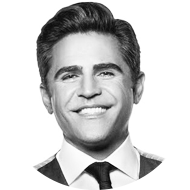As highly educated, well-compensated professionals, doctors tend to be in a prime position to invest so they can grow their wealth and save for retirement. Yet, because doctors often work so many hours and specialize in health rather than finance, they commonly make investing mistakes that limit their finances.
Any professional can be susceptible to investing mistakes, but doctors should be particularly careful because their compensation — over $300,000 per year on average, according to the Medscape Physician Compensation Report 2019 — means they generally have significant amounts of assets at risk.
In particular, physicians, dentists and other doctors should avoid the following three mistakes:
Mistake #1: Not Taking the Time to Understand Their Investment Options
Busy professionals like doctors may not take the time to fully dive into their investment options before committing, which can cause them to choose suboptimal investments. For example, some doctors may choose to only invest in assets they’ve heard a lot about, such as savings bonds or mutual funds, but familiarity doesn’t mean these are the best choices.
Some investments like savings bonds may be too conservative to yield enough for a comfortable retirement, whereas mutual funds can vary dramatically in terms of what they invest in, their risk profiles, returns, fees and more. A doctor may decide to just invest in a mutual fund that a colleague invests in, without comparing this option to other mutual funds, let alone other types of investments.
Asset classes such as commercial real estate may be lesser known and considered overly complex or risky, yet a doctor may find that certain commercial real estate properties like multifamily apartments provide stable rental income, even during slow economic periods. In contrast, a mutual fund that invests in public companies may be more volatile than a doctor expects.
Solution:
While doctors do not have to become investment experts themselves, they can go much further by utilizing the wide range of investment resources at their disposal. If doctors want to put in the time themselves, there are many investing resources, ranging from media articles to online message boards to research companies like Morningstar where they can learn and compare options before committing.
However, since doctors typically work too many hours to also take on the task of exploring all of their investment options, working with a professional can save significant time and provide valuable expertise. However, less than half of physicians currently work with a financial planner, according to a Medscape survey.
Even if doctors do not want to work with a financial advisor full-time, some offer hourly or flat fee consultations to help set investors on the right path. Doctors can also spend a short amount of time simply asking professional investment managers a few questions about risk, return expectations, and fees before committing their money.
Want to learn more about your investing options? Connect with our team of specialists today!
Mistake #2: Not Doing Their Due Diligence
Similar to not taking the time to understand investment options, doctors also commonly make the mistake of not doing their due diligence on specific investments. Conducting proper due diligence essentially means that you spend time doing research on any company or area you plan to invest into to help ensure it is what it seems to be. This includes areas such as financial strength, leadership, as well as any other risks such as pending litigation.
Conducting due diligence can vary by investment type. Publicly traded assets like stocks have readily-available financial statements and can be checked relatively quickly, whereas private startups and some real estate investments may require more digging. Still, regardless of what the investment is, investors should always conduct some level of due diligence to try to ensure they’re getting what they think they’re investing in.
As research from Fundify reported in Institutional Investor shows, 69% of angel investments in private equity that were made after conducting one hour or less of due diligence suffered losses. In contrast, 58% of deals with over 40 hours of due diligence research showed gains.
Solution:
Doctors likely due not have the expertise or time to deeply conduct due diligence, but they can still take action and should always have a healthy level of skepticism before handing over their hard-earned money.
When investing in public assets such as mutual funds or ETFs, they can check the prospectuses filed by these funds to see if they’re getting what they think they’re investing in, and then they can check how research companies like Morningstar rate those funds. Working with a financial planner or other professionals can also help in the due diligence process.
For private assets, doctors should try to dive a bit deeper, such as by talking to the founders of a startup and asking to see financial statements before investing in them, or physically going to the site of a real estate investment and checking property records before allocating there. Here too, a professional with experience investing in private assets and conducting proper due diligence can be quite valuable. Doctors should look to companies they trust (and do a bit of background digging on those companies too) who can help them conduct due diligence before investing in specific assets.
Mistake #3: Not Aligning Investments with Goals
Part of taking the time to consider investment options means thinking about whether an investment is right for your circumstances. Yet too often, doctors do not align investments with their goals.
For example, a Fidelity survey of physicians found that 39% of those getting close to retirement were still very aggressive with their equity investments, while over one-third of physicians in their 40s were investing conservatively. Generally, those strategies should be the other way around, as younger investors have more time to reach savings goals and can be more aggressive, whereas those getting close to retirement may not have time to weather the ups and downs of markets.
However, almost half of doctors do not have a savings goal for when they reach a certain age, according to a Medscape survey. If a doctor doesn’t know how much they want to save by the time they reach retirement age, for instance, then it’s much harder to know how to structure their investments. Yet if a doctor knows they want to have, say, $4 million by the time they turn 65 and they already have $3 million at age 55, then they may want to choose an investment such as commercial real estate that aims to steadily increase wealth, as just a 3% annual return would turn $3 million into over $4 million in 10 years.
Solution:
Before investing, doctors should clarify their goals and think about how investments align with those objectives. Factors such as fees, risk, and even the environmental and social responsibility of specific investments can affect whether an asset aligns with a doctor’s goals. For example, investing in affordable housing rather than stocks in fossil fuel companies may align more with a doctor’s personal goals for how they use their wealth, and the recession-resiliency of commercial real estate may align with a doctor’s risk tolerance.
A financial planner can also help with goal-setting and alignment. And when conducting due diligence on investment managers and comparing their options, a doctor may be able to ask that manager how they can help them reach their goals.
All investors can make mistakes, as markets are naturally unpredictable. Yet doctors can improve their odds of successfully investing by avoiding these three common mistakes before they commit any capital. If you’d like more guidance about how commercial real estate investing can be a good option and align with the goals of many doctors, you may benefit from speaking with a professional real estate investor.




